Advocate, squeaky wheel or both? How one daughter helped save her mother's life
KIRC with a personal story of why hospitals can sometimes be dangerous
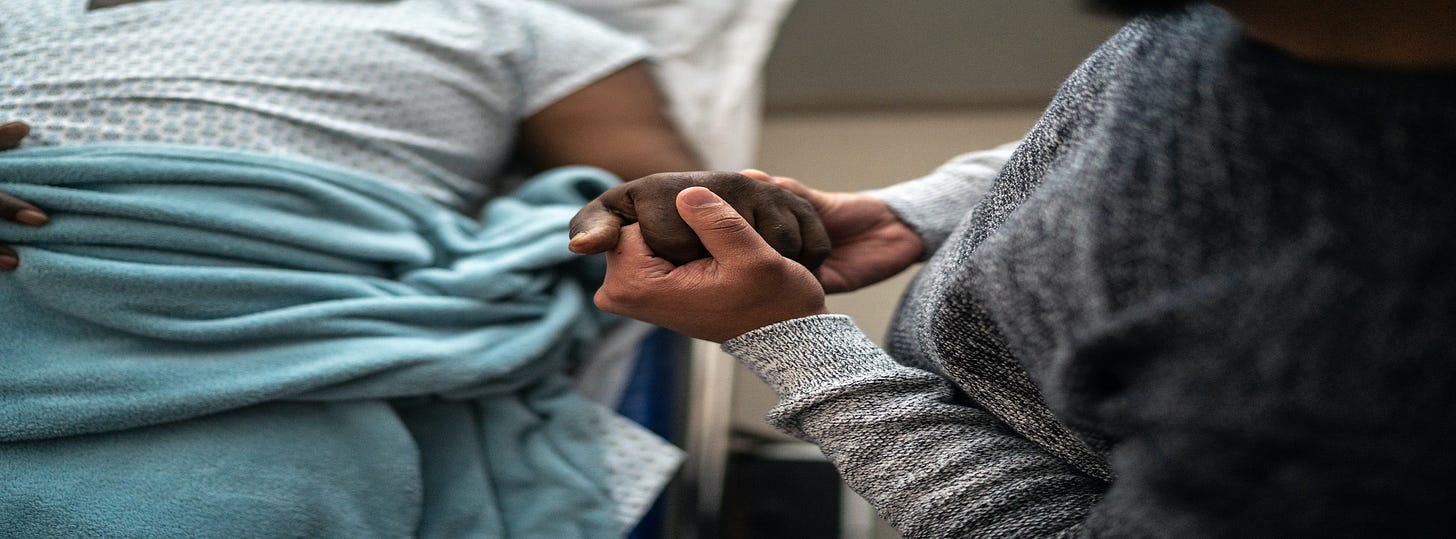
There is nothing fun about being in a hospital. I trust most of you will agree with that statement, right?
In some cases, a trip to the hospital can lead to even more serious health situations.
In this update, a personal story from a woman, a daughter and family caregiver.
In 2010, Andi Phillips began what can be described as nothing short of a real-life nightmare medical situation for her 92-year old mother, Diana.
This family's journey is a sobering lesson for caregivers: if your loved one, especially an elder is admitted to the hospital, you simply MUST become an ADVOCATE for them!
*Here is part of our conversation detailing this ordeal. To listen to the full story, check out the PODCAST episode*
Julia: Tell me about your mother? She sounds like an incredible woman?
Andi: She really is, she’s something else. She raised 5 kids, has 13 grandchildren and was married for over 60 years to the love of her life. She was also a communications person and worked until she retired, then did volunteer work and had a vibrant, wonderful life.
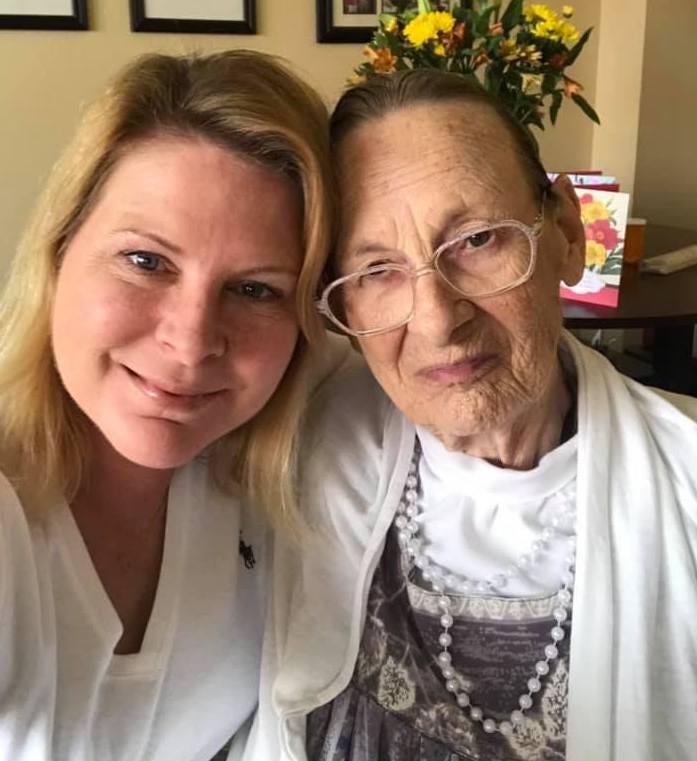
Andi & Diana Phillips/Courtesy: Andi Phillips
In 2010, her life changed. Shortly after he husband died she had medical issues.
Julia: With what you experienced, when it comes to hospital care, what did you learn about our loved ones needing us to be their advocates all the time?
Andi: Oh it’s really true. No one can ever really be prepared for what that is like, to have your loved one incapacitated, in a hospital setting, with just a lack of information. And the inability to really know how to fix that person.
I’m not a medical professional but I feel like I became a medical professional because I had to.
Julia: What happened?
Andi: My mom went in for a stent. She had some circulation problems and they determined that the 'saving' thing was going to be a 'routine procedure.’ Of course when you’re in your 80’s there are always risks.
She was pretty healthy. So we go in for this procedure, and they put this stent in, in her abdominal aorta area and the next day she’s in recovery.
She wasn’t talking to me much, but with the anesthesia, that was expected. Then the next day I’m in there and she’s supposed to be able to keep down liquids. But she can’t keep anything down and she’s miserable and she’s in a lot of pain.
So I’m thinking, wow this doesn’t look right I don’t think she’s recovering well.
And by the third day, it was really bad. There was this horrible odor and she was throwing up. (I know this is graphic and gross).
Julia: Well, we do call this Keeping it REAL and that is exactly why. Sometimes these topics are tough. Let me ask you… did she have regular nursing care when you were noticing these issues? Did her care staff not notice something was different; that your mother was not doing well?
Andi: They did not. They had this thing, like, ‘Oh she’s older, she’ll be fine, it’s just the anesthesia.’
And I remember the nurse who was taking care of her in recovery… she had a cold and she couldn’t smell anything. I said, ‘I can’t believe you can’t smell anything? It’s really foul. The odor coming out of her? And it doesn’t look normal. She’s not throwing up jello, this is really brown and gross and horrible…'
And they were like ‘Wow, I don’t know what to tell you.’
And I said, ‘You need to get the doctor in here,’ and I just pressed on them and pressed on them.
The next portion is a horrible incident and it was a blur...
The next day, I got a call from doctors saying, ‘You need to get your family around you, we don’t know that she’s going to survive.’
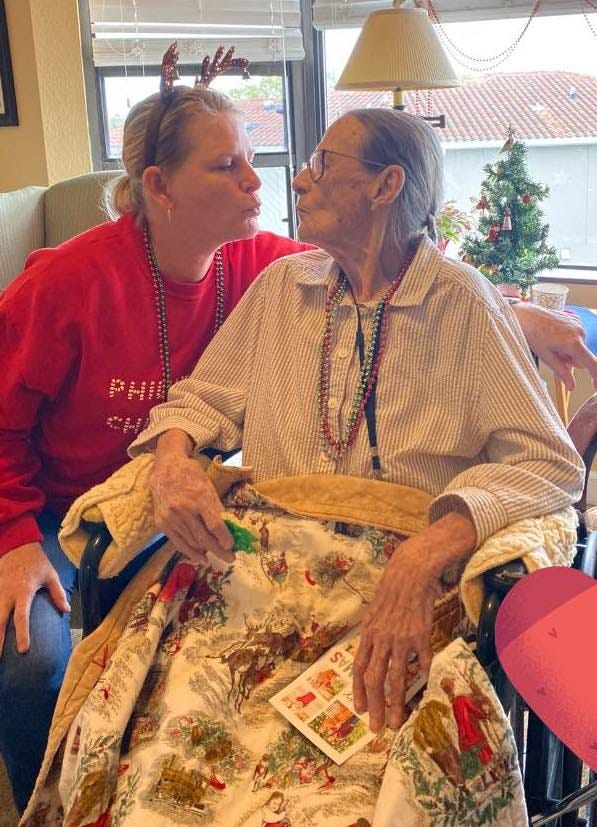
Andi & Diana Phillips/Courtesy: Andi Phillips
Julia: So as all of this was happening, had you not been in the hospital that day and insisted that doctors see her, what do you think would have happened?
Andi: I honestly don’t think she wold be alive and unfortunately that wasn’t the last time that happened…when I had to come in and say ‘something is not right, you have to fix this!
*****
This family’s case is no doubt severe. But it drives home the point of how and why our loved one’s need us to be their advocate at all times. To watch, to listen, to ask questions, to pay attention to every little change in our loved one's condition and to demand action when necessary.
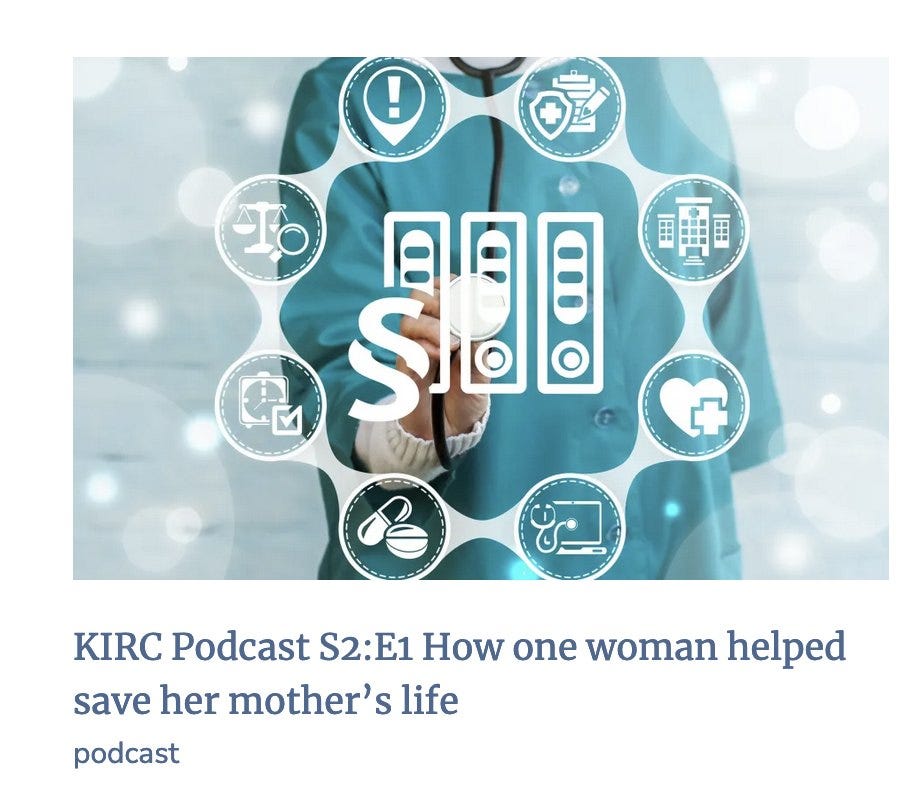
www.KeepingitREALCaregiving.com
To hear the rest of this story, be sure to check out the Keeping it REAL Caregiving podcast, S2:E1.
Also, read my blog Better to Look Good in which I discuss some steps you can take if you do have a hospital visit.
What actions have you taken when a loved one has gone into the hospital? Is there anything you have learned that would be useful for others? Jump into the discussion to share!
Plus, we'll have more on this topic AND what to be aware of once your loved one is released from the hospital.
*Upcoming event*
PASSAGES: What to know: advocating for yourself in the hospital
Wednesday, January 19, 2022
2 PM Pacific/5 PM Eastern (Online)
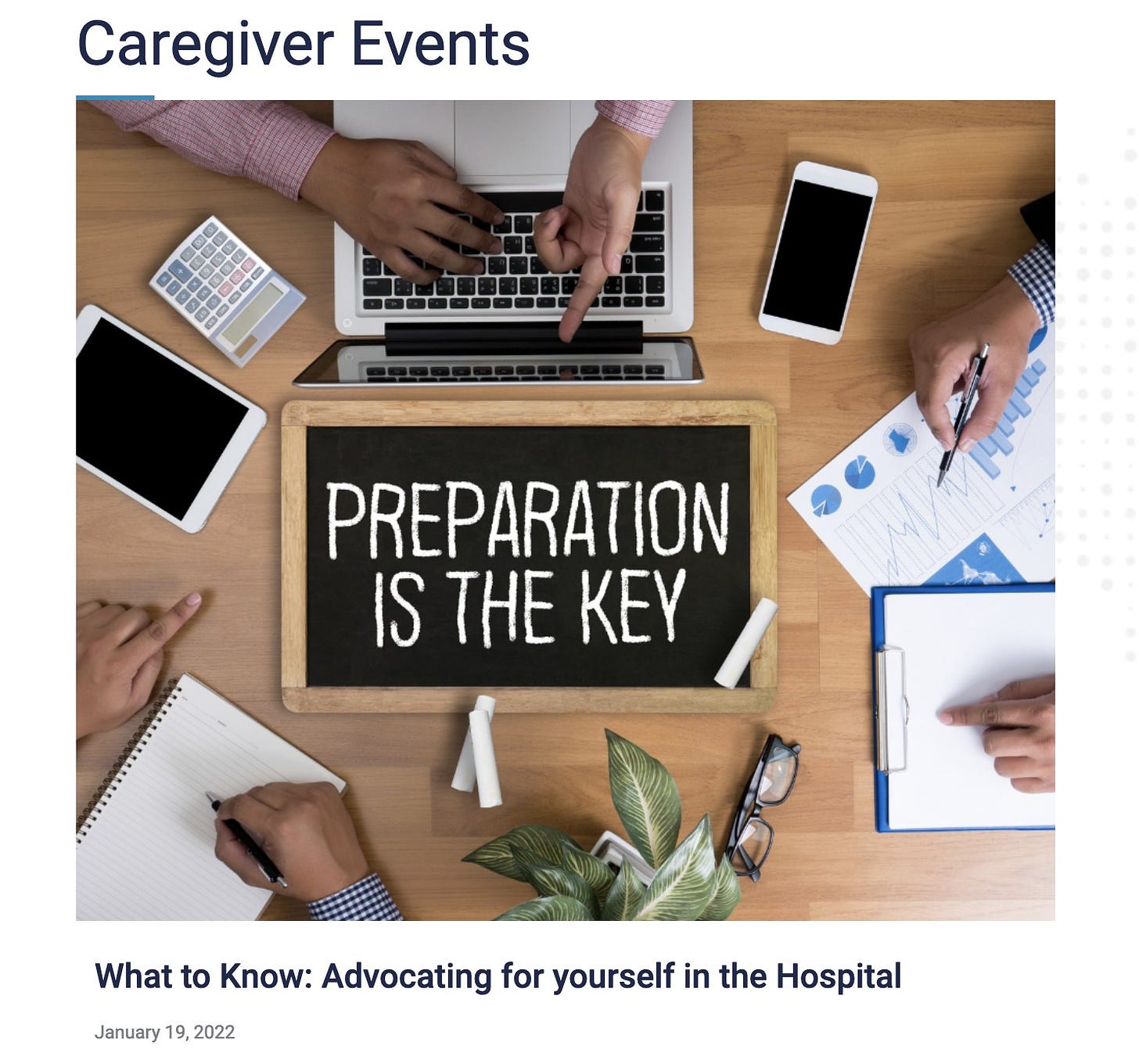
Screen grab/Courtesy: PASSAGES
*Previous event*
KIRC hosted the first Coffee Chat & Support Hour of 2022 January 2, 2022. If you missed it, don't worry - we'll schedule more like this.
You can check out the video HERE.
Until next time,
Julia
🌸💐🌼🌸💐🌼🌸💐🌼
*Header Image: Courtesy Getty Images/FG Trade
Questions or Comments about KIRC and our content📮? info@juliayarboughmediagroup.com
Liking what KIRC is dishing up💛, share it with your circle of family & friends
Looking to catch up on KIRC stories, 🔎 find them on Bulletin
Stay in the loop on 📶 Facebook, Instagram, and Twitter
Have a story idea, topic or event you would like to see covered and/or featured? Jump into the discussion and let me know!
Check out 📽 Videos & 📡 Podcasts at the Keeping it REAL Caregiving website
Remember to SUBSCRIBE FOR FREE - 📬 to stay up to date with KIRC news & info!
Looking for a professional 🗣speaker, moderator or host🗨 for your next event? Contact Julia for details



